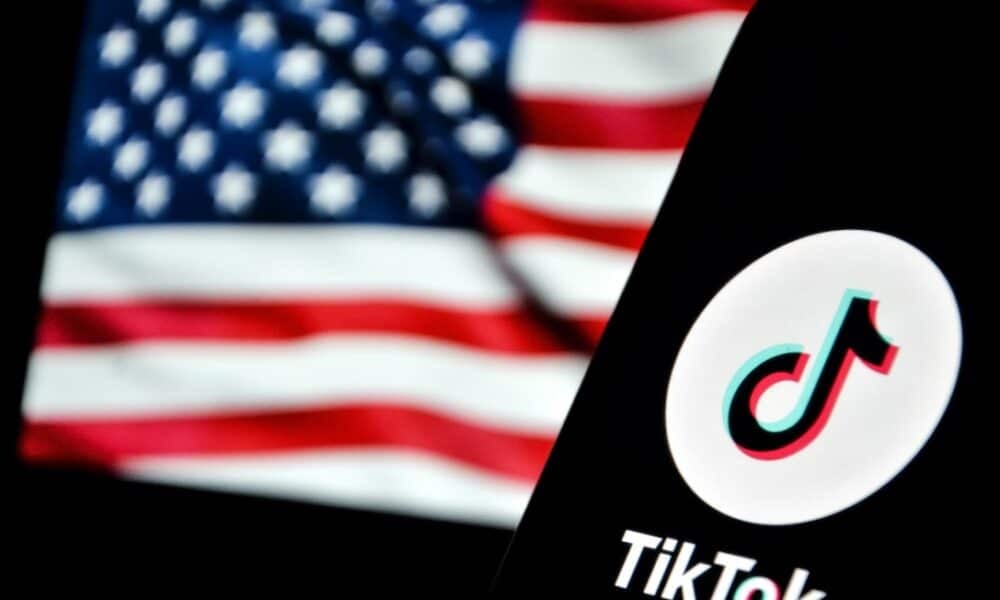US Supreme Court reinforces decision that may lead to TikTok ban in 2025
The United States Supreme Court has reaffirmed a landmark decision requiring TikTok’s parent company, ByteDance, to sell the platform by January 19, 2025. Failure to comply could result in a complete ban of the app within the country. This measure aims to mitigate national security risks cited by U.S. authorities, who fear the misuse of user data collected by the Chinese-owned company. With over 170 million users in the U.S., TikTok is one of the most popular apps, especially among younger generations.
The Supreme Court’s ruling followed ByteDance’s appeal, which was denied on the grounds that the ban does not infringe on First Amendment rights. The court justified its decision by emphasizing national security concerns and citing the company’s data practices as clear risks, particularly due to its potential ties to the Chinese government.
In addition to its direct impact on users, the ruling has also stirred the digital market and international trade relations. With the looming ban, investors and potential American buyers have expressed interest in acquiring TikTok’s U.S. operations.
Impact of the ban on users and digital influencers
With over 170 million active users in the U.S., TikTok has become a crucial platform for content creators, businesses, and organizations that rely on the app for engagement, marketing, and communication. The ban could have significant repercussions, forcing millions of influencers and brands to migrate to alternatives like Instagram Reels, YouTube Shorts, and other emerging platforms.
If the ban takes effect, new downloads and updates of the app will be blocked, though users with TikTok already installed can continue to use it. This gradual restriction will erode the app’s functionality and relevance in the competitive social media market over time.
Historical context of the TikTok controversy
The debate over TikTok’s security risks in the U.S. gained traction in 2020 during Donald Trump’s administration, which attempted to ban the app citing national security concerns. At the time, ByteDance proposed partnerships with American companies to manage user data, but negotiations stalled. In 2022, the “No TikTok on Government Devices Act” banned the use of TikTok on federal devices, a move later adopted by various states and federal agencies.
In April 2024, Congress passed the “Protecting Americans from Foreign Adversary Controlled Applications Act,” which reinforced the requirement for ByteDance to divest its U.S. TikTok operations. The legislation asserts that apps controlled by foreign adversaries pose a threat to national security and Americans’ privacy.
Political reactions and potential outcomes
President-elect Donald Trump, who will take office on January 20, 2025, has suggested considering measures to delay the ban’s enforcement. Trump indicated he might issue an executive order granting a 60- to 90-day extension to provide additional time for negotiations between ByteDance and potential American buyers.
Among those interested in acquiring TikTok’s U.S. operations are prominent market figures such as Frank McCourt and Kevin O’Leary. These negotiations could not only prevent a total ban but also maintain the app’s connectivity for millions of users in the digital era.
Key national security concerns
Claims that TikTok poses a national security threat focus on its collection of personal data from millions of Americans, which could allegedly be accessed by the Chinese government. U.S. authorities argue that the app could be used for espionage, information control, and disinformation dissemination. These concerns are heightened by the fact that ByteDance, as a China-based company, is subject to the country’s cybersecurity laws, which mandate cooperation with Chinese authorities when requested.
For its part, ByteDance strongly denies these allegations, asserting that American user data is stored on U.S.-based servers and that robust systems are in place to prevent external interference.
Possible scenarios for TikTok’s future in the U.S.
If ByteDance fails to sell TikTok by the final deadline, the app will face a series of restrictions in the U.S.:
- Ban on new downloads: TikTok will be removed from app stores, preventing new users from downloading it.
- Lack of updates: Existing users will not receive updates, potentially compromising the app’s functionality and security.
- User migration: As TikTok’s usability declines, users and content creators will likely seek alternatives to maintain their digital presence.
Conversely, if ByteDance sells TikTok to an American company, the app could continue operating normally but under a new governance model that complies with U.S. security requirements.
Relevant statistics and data
- Over 170 million active users in the U.S. use TikTok regularly, spanning a primarily young demographic.
- In 2024, TikTok accounted for approximately 10% of the digital advertising market in the U.S.
- Studies indicate that around 50% of American teenagers rely on TikTok as their primary source of entertainment and news.
Global influence of TikTok and its potential exit from the U.S.
TikTok is not only popular in the U.S. but also one of the most influential platforms worldwide. Its potential withdrawal from the U.S. market would represent a significant shift in the digital landscape. Companies and creators that rely on the app to reach large audiences would need to restructure their communication strategies.
TikTok’s exit would also create opportunities for other platforms to expand their presence in the U.S. Instagram, YouTube, and Snapchat could benefit from this scenario, attracting creators and brands previously focused on TikTok.
Interesting facts about TikTok’s journey in the U.S.
- TikTok was launched internationally in 2016 and quickly became one of the world’s most downloaded platforms.
- In 2018, the app surpassed Facebook and Instagram in U.S. downloads.
- TikTok is widely recognized for popularizing viral trends, challenges, and music, often achieving global success.

The United States Supreme Court has reaffirmed a landmark decision requiring TikTok’s parent company, ByteDance, to sell the platform by January 19, 2025. Failure to comply could result in a complete ban of the app within the country. This measure aims to mitigate national security risks cited by U.S. authorities, who fear the misuse of user data collected by the Chinese-owned company. With over 170 million users in the U.S., TikTok is one of the most popular apps, especially among younger generations.
The Supreme Court’s ruling followed ByteDance’s appeal, which was denied on the grounds that the ban does not infringe on First Amendment rights. The court justified its decision by emphasizing national security concerns and citing the company’s data practices as clear risks, particularly due to its potential ties to the Chinese government.
In addition to its direct impact on users, the ruling has also stirred the digital market and international trade relations. With the looming ban, investors and potential American buyers have expressed interest in acquiring TikTok’s U.S. operations.
Impact of the ban on users and digital influencers
With over 170 million active users in the U.S., TikTok has become a crucial platform for content creators, businesses, and organizations that rely on the app for engagement, marketing, and communication. The ban could have significant repercussions, forcing millions of influencers and brands to migrate to alternatives like Instagram Reels, YouTube Shorts, and other emerging platforms.
If the ban takes effect, new downloads and updates of the app will be blocked, though users with TikTok already installed can continue to use it. This gradual restriction will erode the app’s functionality and relevance in the competitive social media market over time.
Historical context of the TikTok controversy
The debate over TikTok’s security risks in the U.S. gained traction in 2020 during Donald Trump’s administration, which attempted to ban the app citing national security concerns. At the time, ByteDance proposed partnerships with American companies to manage user data, but negotiations stalled. In 2022, the “No TikTok on Government Devices Act” banned the use of TikTok on federal devices, a move later adopted by various states and federal agencies.
In April 2024, Congress passed the “Protecting Americans from Foreign Adversary Controlled Applications Act,” which reinforced the requirement for ByteDance to divest its U.S. TikTok operations. The legislation asserts that apps controlled by foreign adversaries pose a threat to national security and Americans’ privacy.
Political reactions and potential outcomes
President-elect Donald Trump, who will take office on January 20, 2025, has suggested considering measures to delay the ban’s enforcement. Trump indicated he might issue an executive order granting a 60- to 90-day extension to provide additional time for negotiations between ByteDance and potential American buyers.
Among those interested in acquiring TikTok’s U.S. operations are prominent market figures such as Frank McCourt and Kevin O’Leary. These negotiations could not only prevent a total ban but also maintain the app’s connectivity for millions of users in the digital era.
Key national security concerns
Claims that TikTok poses a national security threat focus on its collection of personal data from millions of Americans, which could allegedly be accessed by the Chinese government. U.S. authorities argue that the app could be used for espionage, information control, and disinformation dissemination. These concerns are heightened by the fact that ByteDance, as a China-based company, is subject to the country’s cybersecurity laws, which mandate cooperation with Chinese authorities when requested.
For its part, ByteDance strongly denies these allegations, asserting that American user data is stored on U.S.-based servers and that robust systems are in place to prevent external interference.
Possible scenarios for TikTok’s future in the U.S.
If ByteDance fails to sell TikTok by the final deadline, the app will face a series of restrictions in the U.S.:
- Ban on new downloads: TikTok will be removed from app stores, preventing new users from downloading it.
- Lack of updates: Existing users will not receive updates, potentially compromising the app’s functionality and security.
- User migration: As TikTok’s usability declines, users and content creators will likely seek alternatives to maintain their digital presence.
Conversely, if ByteDance sells TikTok to an American company, the app could continue operating normally but under a new governance model that complies with U.S. security requirements.
Relevant statistics and data
- Over 170 million active users in the U.S. use TikTok regularly, spanning a primarily young demographic.
- In 2024, TikTok accounted for approximately 10% of the digital advertising market in the U.S.
- Studies indicate that around 50% of American teenagers rely on TikTok as their primary source of entertainment and news.
Global influence of TikTok and its potential exit from the U.S.
TikTok is not only popular in the U.S. but also one of the most influential platforms worldwide. Its potential withdrawal from the U.S. market would represent a significant shift in the digital landscape. Companies and creators that rely on the app to reach large audiences would need to restructure their communication strategies.
TikTok’s exit would also create opportunities for other platforms to expand their presence in the U.S. Instagram, YouTube, and Snapchat could benefit from this scenario, attracting creators and brands previously focused on TikTok.
Interesting facts about TikTok’s journey in the U.S.
- TikTok was launched internationally in 2016 and quickly became one of the world’s most downloaded platforms.
- In 2018, the app surpassed Facebook and Instagram in U.S. downloads.
- TikTok is widely recognized for popularizing viral trends, challenges, and music, often achieving global success.











Post Comment